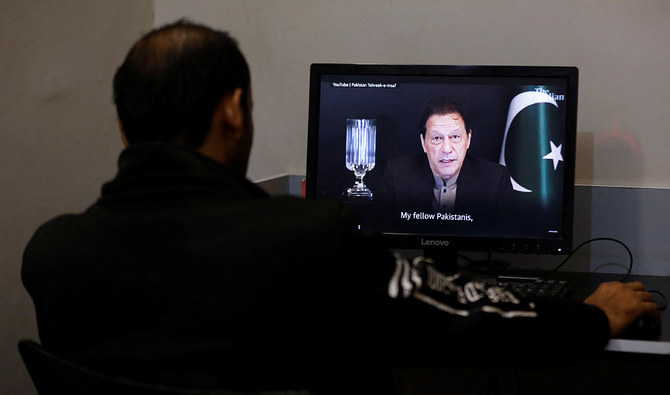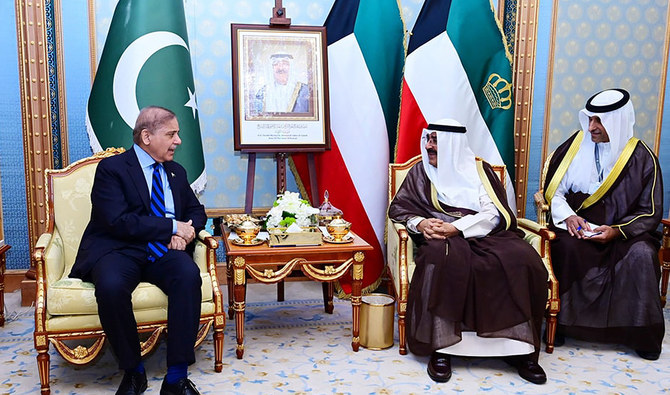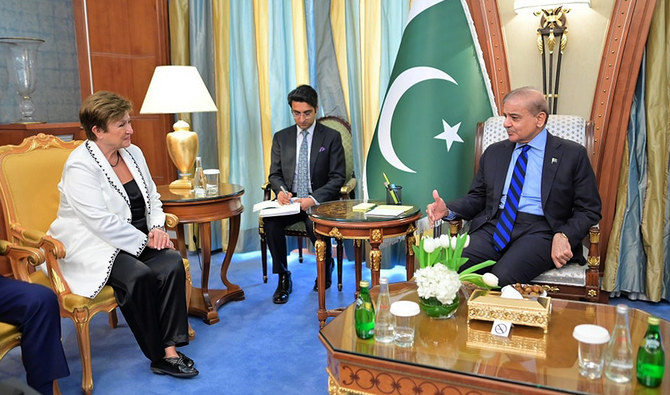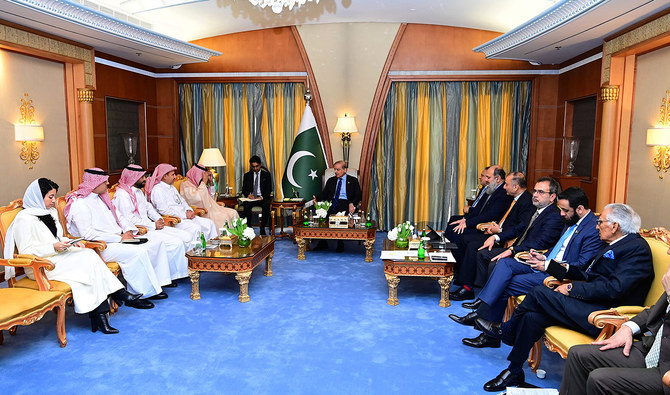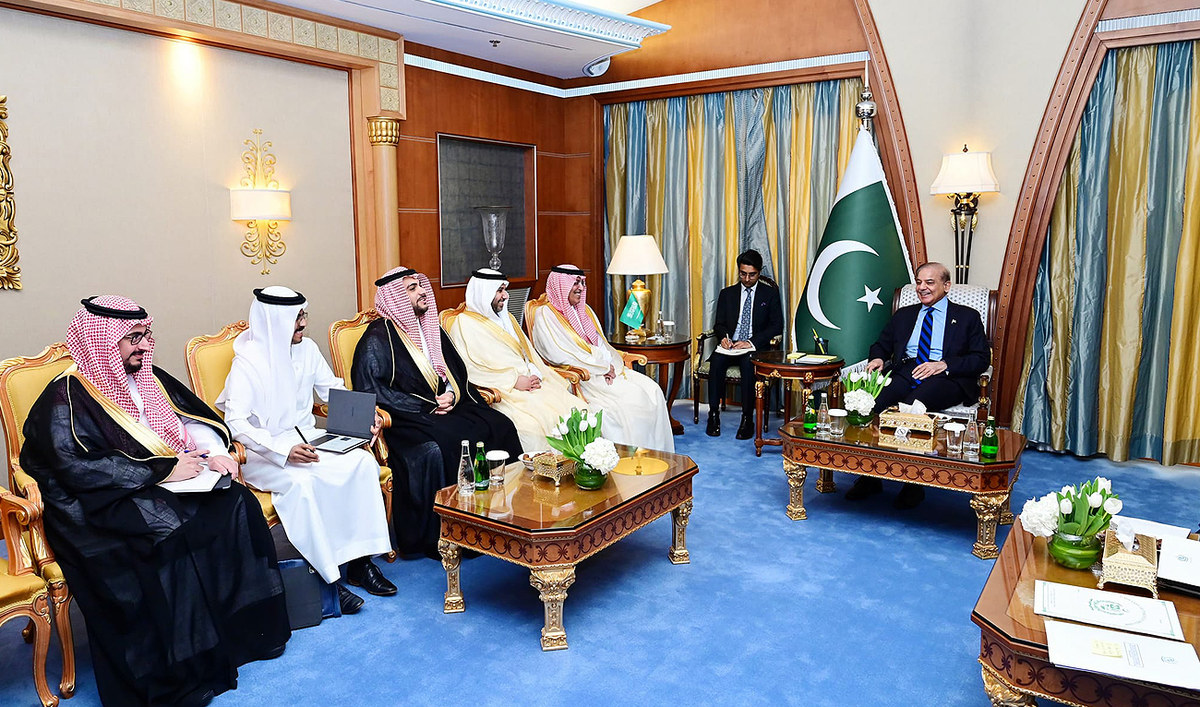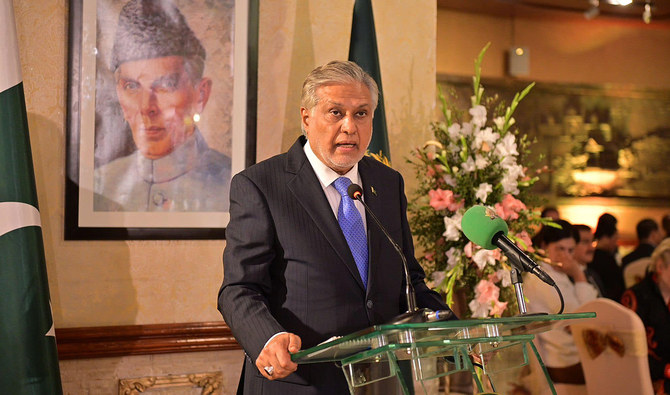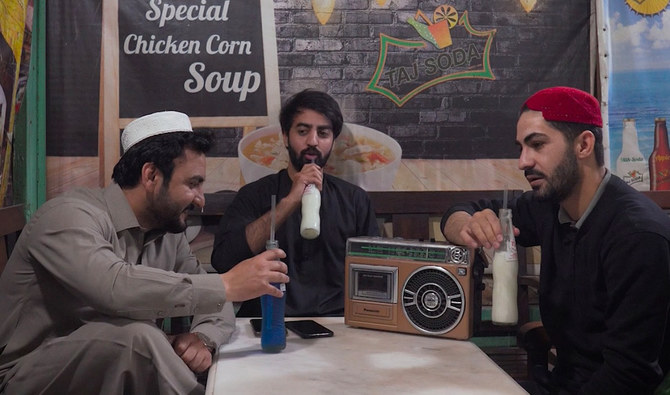LAHORE/KARACHI: Days before Pakistan’s Feb. 8 election, a masked and headscarf-clad Komal Asghar led a team of similarly dressed women through alleys in the eastern city of Lahore.
Their mission: to knock on doors and distribute campaign pamphlets adorned with photos of jailed former prime minister, Imran Khan.
Asghar, a 25-year-old insurance company employee, gave up her day job for a month to canvass for Khan’s embattled Pakistan Tehreek-e-Insaf (PTI) party.
Khan has been in prison since August. Numerous PTI candidates are behind bars or on the run from criminal and terrorism charges that they say are politically motivated. A Reuters reporter witnessed one of the many rallies that PTI supporters say have been disrupted.
“I’m with Khan. I don’t care about my life. My God is with me,” said Asghar, adding the former premier’s opponents can “do whatever.”
Asghar said the face and hair coverings — which not all the women usually wore — made it easier for them to canvass without attracting unwanted attention. The public perceives women as non-threatening, she said, making it less likely their campaigning would lead to conflict.
The PTI is deploying a two-pronged campaign strategy of secretive campaigning, often led by female teacher volunteers, and generative AI technology, according to interviews with fifteen of its candidates and supporters, as well as political analysts and IT experts.
The party has used generative AI to create footage of Khan, its founder, reading speeches he conveyed to lawyers from his prison cell, urging supporters to turn out on election day. It has organized online rallies on social media that have been watched by several hundred thousand people at a time, according to YouTube data. Khan, who was barred by a court from holding political office last year, is not the first Pakistani leader to be imprisoned during a campaign. But PTI’s ability to tap into new technology and the former cricketer’s personal popularity have kept him in the headlines.
ONE-MAN SHOW?
Khan was sentenced to ten years imprisonment on Jan. 30 for leaking state secrets. He then received a 14-year sentence on Wednesday for illegally selling state gifts. And on Saturday, he was sentenced to seven years for unlawful marriage. He denies all charges and his lawyers say they plan to appeal. The 71-year-old won the last election, in 2018, but was ousted in 2022 after falling out with the country’s powerful military, which PTI has accused of trying to hound it out of existence.
The military denies the allegations and interim Information Minister Murtaza Solangi told Reuters that PTI was only stopped from campaigning when it did not have the required permits or if supporters clashed with law enforcement.
Usman Anwar, police chief of Punjab, Pakistan’s most populous province, said his force’s job was to provide security: “We have not and will not interfere in any political process.”
Rights groups and rival politicians have accused Khan of undermining democratic norms when in power by cracking down on media and persecuting his opponents through the same anti-graft tribunal that sentenced him on Wednesday.
PTI and Khan have called the allegations baseless.
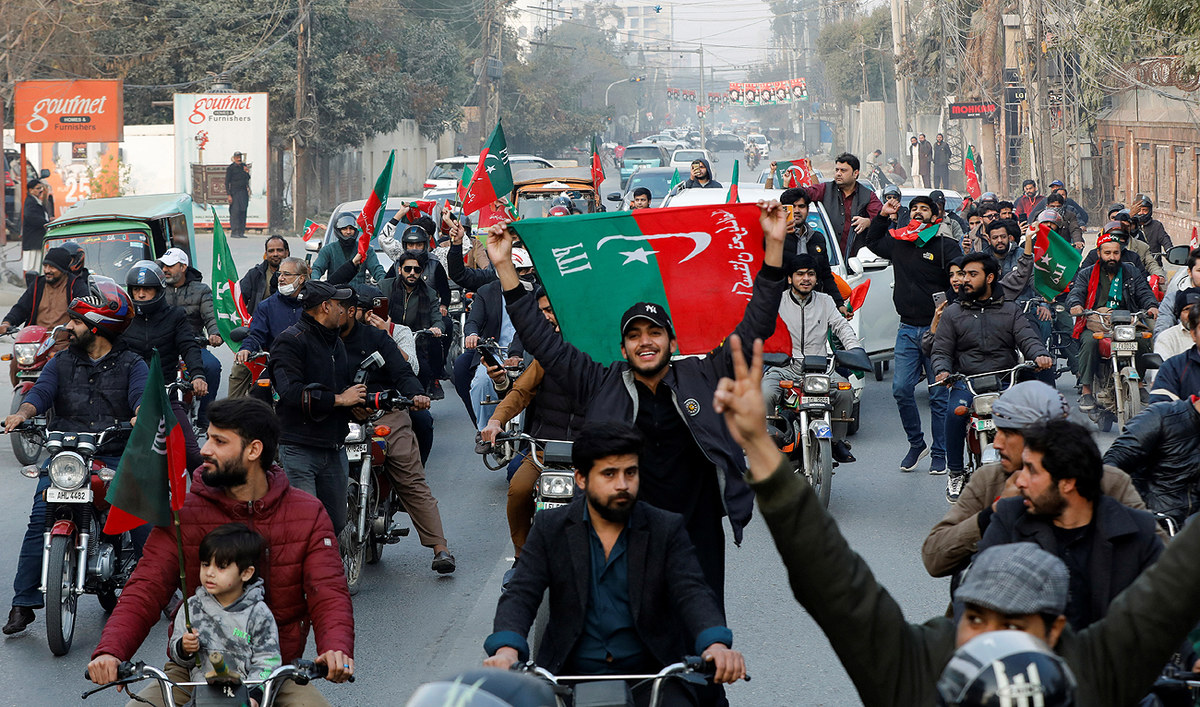
Supporters of former Prime Minister Imran Khan wave flags during a rally ahead of the general elections in Lahore, Pakistan January 28, 2024. (REUTERS)
No reliable polling is publicly available but PTI’s workers and independent analysts such as Madiha Afzal of the US-based Brookings Institution think-tank say Khan maintains strong support, especially among the nation’s large youth population. Nonetheless, restrictions are likely to limit PTI’s ability to compete with rivals such as the Pakistan Muslim League-Nawaz (PML-N), led by the frontrunner, former prime minister Nawaz Sharif, said Afzal. Sharif returned from exile late last year and his corruption convictions and lifetime ban from politics were recently overturned by the Supreme Court.
A PML-N spokesperson did not respond to a request for comment.
“The major structural barriers to the PTI in this election ... make it likely that the party will lose despite its popularity,” said Afzal, adding that Khan’s dedicated supporters meant it was too early to write off the party entirely.
PTI has not said who it will put forward as prime minister if it is victorious on Feb. 8.
VIRTUAL CAMPAIGN
The restrictions on the party have forced it to prioritize digital campaigning, said PTI’s US-based social media lead Jibran Ilyas, who like the party’s other digital leaders is based abroad. Though only about half of Pakistan’s 240 million people have smartphones and Internet connectivity is patchy, PTI hopes that it can reach enough young people to impact the election. The voting age is 18 and more than two-thirds of the electorate is under 45.
Central to this strategy is reminding people who may have voted for PTI due to its famous founder that it is still Khan’s party.
“We have never had a political rally without Imran Khan so when we were planning the online rally, we wanted to find a way to present him to the people,” Ilyas said.
His team used generative AI software from US startup ElevenLabs to create three clips of the former premier delivering speeches. Khan’s lawyers passed messages between PTI and its founder during jailhouse visits and the party wrote the speeches off his notes.
“We debated the misuse potential and decided to stick with audio AI only,” Ilyas said.
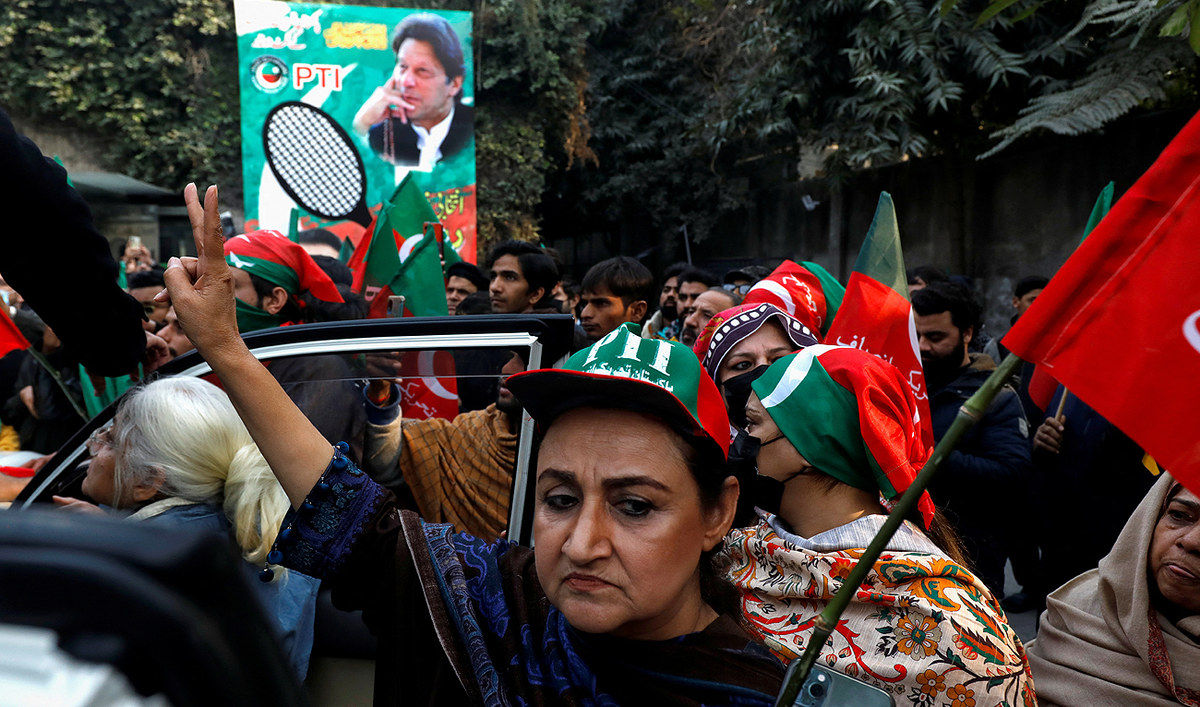
Women supporters of former Prime Minister Imran Khan hold flags during a rally ahead of the general elections in Lahore, Pakistan January 28, 2024. (REUTERS)
ElevenLabs didn’t immediately return a request for comment. PTI also created an app that allows Facebook and WhatsApp users to find the party’s candidate in their constituency. Many voters had identified PTI with its cricket bat electoral symbol but the electoral commission recently banned PTI from using it on the technical grounds that it did not hold an internal leadership election. The decision means the PTI candidates are running without official party affiliation.
The PTI has also held online rallies in an attempt to recreate jalsas, the massive Urdu-language rallies that take place in parks and major intersections nationwide.
But voters have had trouble accessing the rallies. Since Khan’s first arrest in May, the Netblocks global Internet monitor found six disruptions of access to social media platforms including YouTube, X and Facebook at times when the PTI was holding virtual jalsas.
Information minister Solangi said the national disruptions were due to technical reasons unrelated to PTI’s campaign. Pakistan’s IT ministry and telecommunications authority did not return requests for comment.
POLICE PRESENCE
Despite PTI’s online reach, elections in Pakistan — whose voters live in teeming port cities, vast desert and some of the world’s highest mountains ranges — depend on election workers generating turnout.
Banners and posters for parties such as PML-N are a common sight nationwide, but Reuters reporters in Karachi and Lahore — cumulatively home to more than 30 million people — saw almost no PTI banners.
Lahore-based PTI organizer Naveed Gul said that posters were often taken down by authorities shortly after being put up, an accusation that Punjab police chief Anwar called “malicious.” Reuters could not independently verify that PTI party material was taken down.
The ongoing crackdown boiled over on Jan. 28, when PTI planned to hold nationwide rallies on a cool Sunday morning.
But in Karachi, Pakistan’s most populous city, police and Khan’s backers violently clashed. Law enforcement fired tear gas shells, according to television footage. A police spokesperson said 72 arrests were made in the three days after the clashes.
In Lahore, hundreds of PTI workers and supporters gathered at the home of Khan’s lead lawyer, Salman Akram Raja, who is also a PTI legislative candidate. As he emerged from his house, Reuters reporters saw him met by a large police contingent.
Raja said that he was threatened with detention if he did not cancel the planned rally, and Reuters reporters heard a police official telling him they had “orders from high ups.” Asked about the incident, police chief Anwar said he would hold an inquiry if a formal complaint was made.
After consulting with his aides, Raja told supporters to disperse peacefully. He told Reuters that it was important to be free from detention and able to campaign, even in a limited way, in the immediate run-up to the election.
“Each time we go out to campaign, there is fear hanging over our most candidates,” he said. “Everybody feels that each day of campaign ... is a war.”



